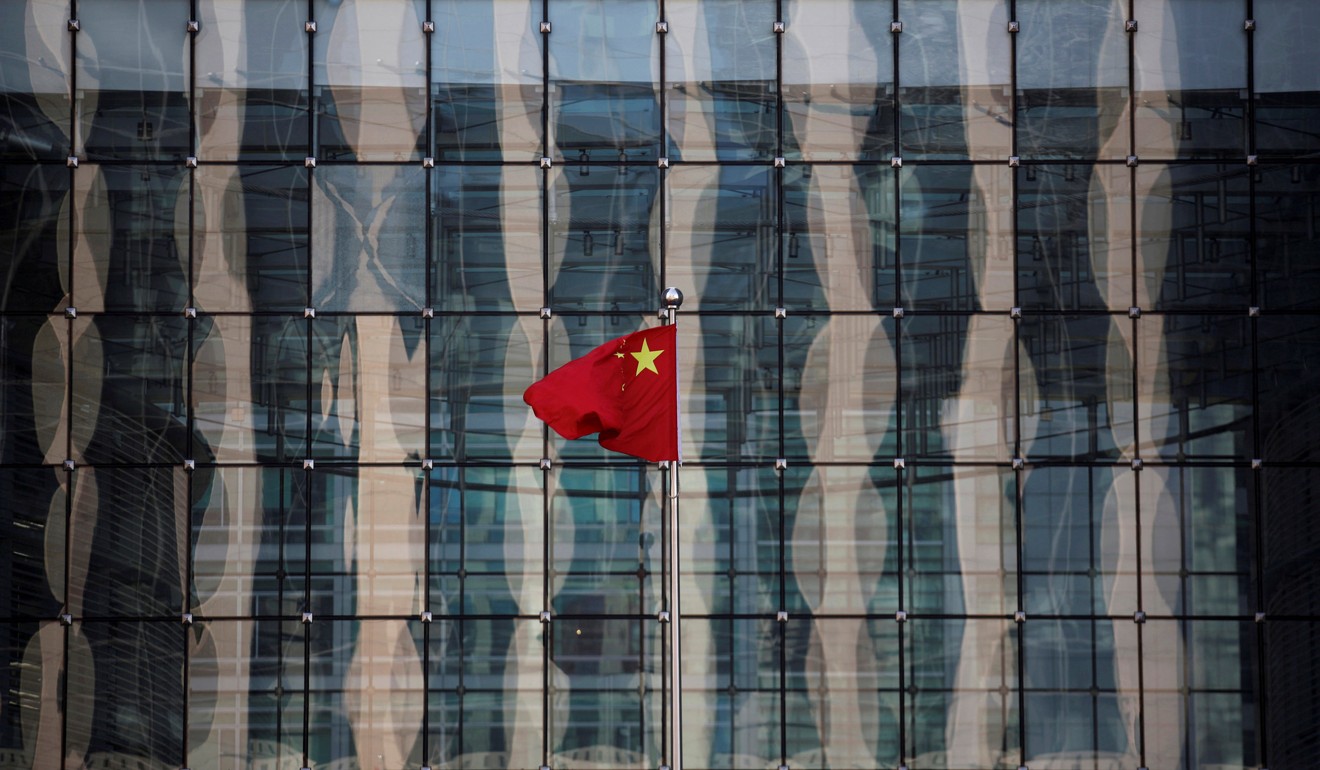
China’s leaders sign off on new rules to crack down on ‘shadow banking’
Official endorsement is latest sign Beijing is serious about cleaning up US$15 trillion asset management industry
A massive clean-up is likely to take place in China’s 100 trillion yuan (US$15 trillion) asset management industry after new regulations targeting “shadow banking” were approved.
The official endorsement by Xi Jinping is the first step from China’s top leadership in battling financial risks after Beijing reorganised its financial regulatory structure and appointed a new team.
It is one of dozens of decisions made at the first meeting of the Central Commission of Comprehensive Reforms on Wednesday, which is headed by Xi himself.
The commission also endorsed a regulation that will increase the transparency and capital adequacy requirements for non-financial investors to buy into banks, insurers and brokerage houses.
The fact that two specific financial regulations were put before the country’s top leaders, including Xi, Premier Li Keqiang and vice-premier Han Zheng, for final endorsement shows Beijing’s resolve to bring order to its shadowy financial world and sent a clear message of no tolerance for murky deals, according to analysts.
“The message is clear that China will proceed with strong financial regulations to defuse risks,” said Raymond Yeung, chief Greater China economist of ANZ Bank.
There will be little prospect of policy loosening “no matter how the regulatory regime is reshuffled or external tensions escalate,” Yeung added.

The official Xinhua News Agency reported that an official statement on the new regulations said: “[We must] adopt unified regulatory standards on types of asset management products, practise fair market access and supervision and eliminate regulatory arbitrage to the maximum extent to promote the industry’s development.”
Under the reforms the Chinese authorities have merged banking and insurance regulators into one to regulate mixed financial operations, while the People’s Bank of China has gained the power to make development strategies, regulatory rules and macro prudential assessment of systemically important financial institutions.
Meanwhile, the Financial Stability and Development Commission was chartered last July to oversee policy coordination.
The nation’s debt to gross domestic product ratio, a widely used indicator of macro leverage, rose by 2.3 percentage points to 242.1 per cent last year, as households increased their borrowing, according to a report released by the National Institution of Finance and Development on Thursday.
It showed a similar trend with data of the Bank for International Settlements, which jumped to 256.8 per cent by the end of September 2017 – up from 253.7 per cent a year earlier.
Zhang Xiaojing, deputy director of the national institution, said the country’s macro leverage had been “basically stabilised” as the current rise was far less than the annual average increase of 12 percentage points in the post-financial crisis period.
His research team therefore suggested shifting the emphasis to key areas, such as state-owned enterprises, whose debt amounted to 99.7 trillion yuan by the end of 2017 – or 62 per cent of the total non-financial corporate total – and local governments potentially ridden by debt in financing vehicles, industry development funds and public-private partnership projects.
“The strong supervision may last three or four years to create a more healthy environment and platform for economic development. The central authorities have made the greatest determination,” Zhang said at the report release seminar.
Zhang Longmei, the International Monetary Fund’s deputy resident representative for China, told the seminar that financial deleveraging effort and its effects were “bigger than expected” and the shift to a high-quality growth model was helping tackle the cause of debt pile-ups.
However, she warned that last year had brought “some luck” given the significant recovery of exports, adding that trade uncertainties may cast a shadow over efforts to preserve economic growth and curb risk.
Zhang added: “a long-term and effective mechanism is needed and market forces should play an important part in it,” Zhang added.

